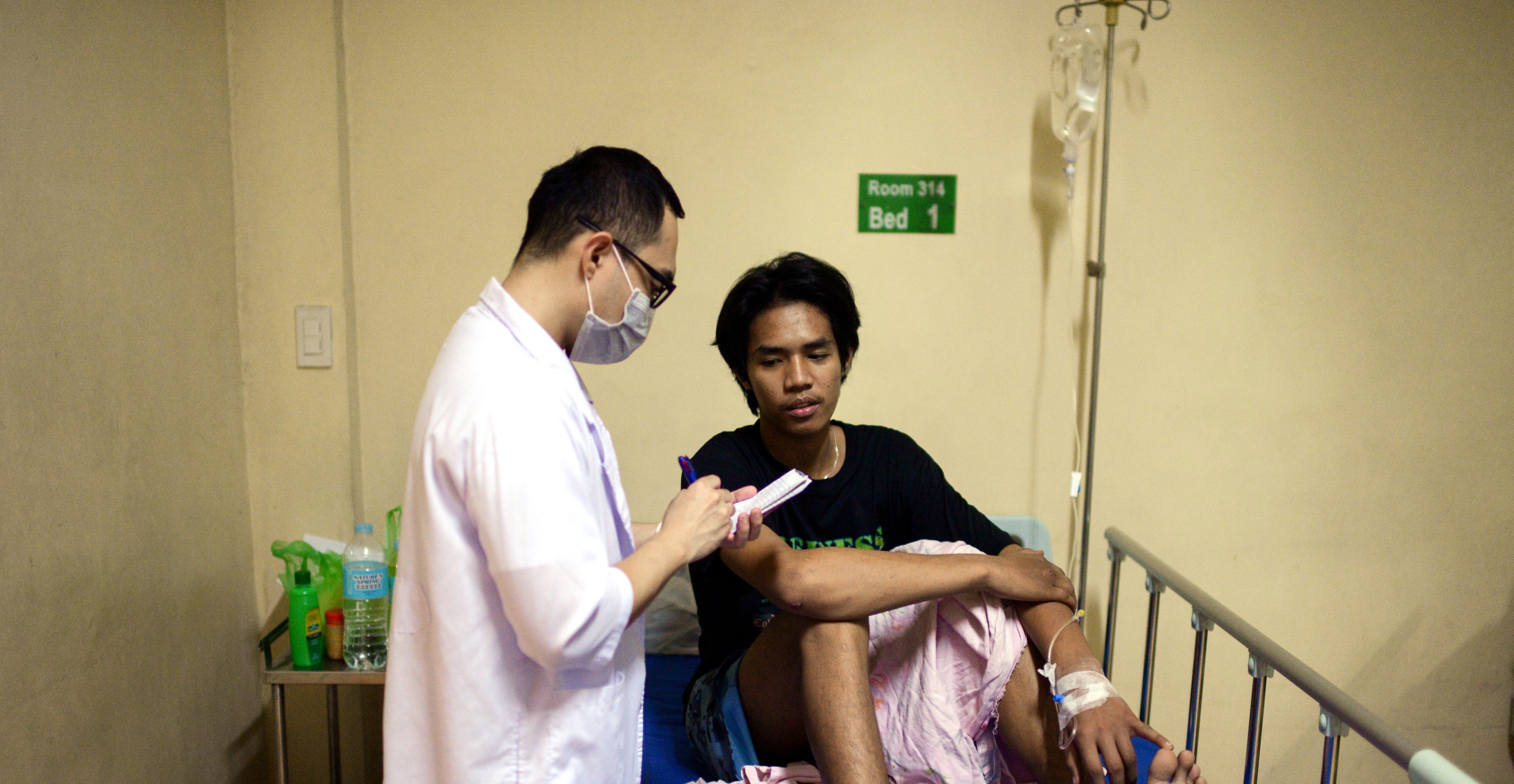COVID-19: What you need to know about the coronavirus pandemic

A young girl receives a COVID-19 vaccine. Image: REUTERS/Hannah Beier
- This weekly COVID-19 news roundup brings you a selection of the latest news and updates on the coronavirus pandemic, as well as tips and tools to help you stay informed and protected.
- Top COVID-19 news stories: US approves vaccines for young children; Omicron less likely to cause long COVID; G20 sets $1.5 billion funding target to fight pandemics.
1. How COVID-19 is affecting the globe
Confirmed cases of COVID-19 have passed 538.9 million globally, according to Johns Hopkins University. The number of confirmed deaths has now passed 6.31 million. More than 11.99 billion vaccination doses have been administered globally, according to Our World in Data.
The US Centers for Disease Control and Prevention now recommends COVID-19 vaccines for children as young as six months, allowing a nationwide rollout to start imminently. The move came after a panel of advisers to the institution voted to recommend COVID-19 vaccines for children of that age.
People infected with the earliest version of the Omicron variant of the coronavirus – first identified in South Africa in November – may be vulnerable to reinfection with later versions of Omicron even if they have been vaccinated and boosted, new findings suggest.
Macau, the world's biggest gambling hub, began its second day of mass COVID-19 testing on Monday after dozens of locally transmitted cases were discovered over the weekend, with most businesses shut but casinos remaining open.
North Korea has recorded another 18,820 new fever cases amid its first official COVID-19 outbreak, state news agency KCNA said on Monday, as daily reported infections continued to drop and no new deaths were reported.
The European Medicines Agency has launched a rolling review of a variant-adapted COVID-19 vaccine developed by Pfizer and BioNTech, as cases of new Omicron sub-variants are on the rise. Clinical trial data will be added to the rolling submission, which is designed to speed up any approval, BioNTech and Pfizer said in a joint statement.
The Swiss parliament has refused to fully finance the government's plan to buy COVID-19 vaccines in 2023. It means the government could initially procure only 3.5 million additional vaccine doses each from Moderna and Pfizer/BioNTech instead of seven million each for 2023 it announced in March.
US healthcare giant Pfizer has agreed to buy an 8.1% stake in French vaccines company Valneva. The French company is working on a COVID-19 vaccine.

2. Omicron less likely to cause long COVID
The odds of developing long COVID after infection were 20% to 50% lower during the Omicron wave in the UK compared to Delta, researchers at King's College London found, using data from the ZOE COVID Symptom study app. The figure varied depending on the patient's age and the timing of their last vaccination.
Long COVID, which includes prolonged symptoms ranging from fatigue to "brain fog", can be debilitating and continue for weeks or months. It is increasingly being recognized as a public health problem, and researchers have been racing to find out whether Omicron presents as big a risk of long COVID as previously dominant variants.
The study from King's is believed to be the first academic research to show Omicron does not present as great a risk of long COVID, but that does not mean long COVID patient numbers are dropping, the team said.
While the risk of long COVID was lower during Omicron, more people were infected, so the absolute number now suffering is higher. The UK's Office for National Statistics said in May that 438,000 people in the country have long COVID after Omicron infection, representing 24% of all long COVID patients.
3. G20 targets $1.5 billion for pandemic fund
The G20 group of major economies aims to raise $1.5 billion this year for a fund set up to better prepare for future pandemics, the health minister of current G20 president Indonesia has said.
G20 countries have provisionally agreed to set up a multi-billion-dollar fund that health officials have said will finance efforts such as surveillance, research and better access to vaccination for lower-to-middle income countries.
Indonesian Health Minister Budi Gunadi Sadikin said in an interview that the United States, European Union, Indonesia, Singapore and Germany have pledged about $1.1 billion to the fund so far.
"If we can get by the end of this year $1.5 billion of fresh funding, we will be very, very happy," he told Reuters, adding that he hopes the group can raise another $1.5 billion next year.
The World Bank, which will house the fund, and the World Health Organization, which is advising, estimate that the annual funding gap for pandemic preparedness is $10.5 billion.
Don't miss any update on this topic
Create a free account and access your personalized content collection with our latest publications and analyses.
License and Republishing
World Economic Forum articles may be republished in accordance with the Creative Commons Attribution-NonCommercial-NoDerivatives 4.0 International Public License, and in accordance with our Terms of Use.
The views expressed in this article are those of the author alone and not the World Economic Forum.
Stay up to date:
COVID-19
Forum Stories newsletter
Bringing you weekly curated insights and analysis on the global issues that matter.
More on Health and Healthcare SystemsSee all
Judith Love
November 18, 2025






